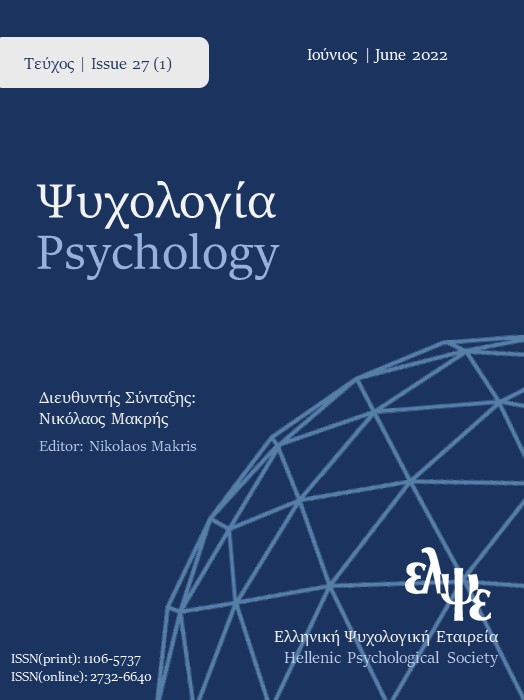From one country to another: adversities and beneficial adaptation. Experiences of refugee children

Abstract
The purpose of the present study was to investigate the adversities encountered by refugee children and the factors promoting healthy adaptation (protective factors- resilience) to new living circumstances. Understanding the experience of each individual refugee is particularly important for policy making (not only for health concerns) in the context of displacement. A qualitative methodology was used. Fifteen (15) students (seven girls and eight boys) who followed an integration program at a Greek primary school in a region of central Macedonia participated. Their ages ranged from 6 to 12 years. Data were collected through semi-structured interviews and processed with Interpretative Phenomenological Analysis (IPA). The systematic analysis of the narratives resulted in 3 central themes and their sub-themes, which lead to a meaningful experience of the children involved. Overall, the analysis of the data highlighted the fact that moving to a new country made the children of this research subject to intense experiences against which their personal potential played an important role.
Article Details
- How to Cite
-
Grigoropoulos, I., & Ntova, M. (2022). From one country to another: adversities and beneficial adaptation. Experiences of refugee children. Psychology: The Journal of the Hellenic Psychological Society, 27(1), 123–141. https://doi.org/10.12681/psyhps.30842
- Section
- RESEARCH PAPERS

This work is licensed under a Creative Commons Attribution-ShareAlike 4.0 International License.
The journal PSYCHOLOGY adopts a Platinum open-access policy. Submission, processing or publication costs are waived by the Hellenic Psychological Society. Papers published in the journal PSYCHOLOGY are licensed under a 'Creative Commons Attribution-ShareAlike 4.0 International' licence. The authors reserve the copyright of their work and grant the journal the right of its first publication. Third-party licensees are allowed to use the published paper immediately after publication as they wish, provided they retain the defined by the license copyright formalities, regarding the reference to its author(s) and its initial publication in the journal PSYCHOLOGY. Moreover, any adjusted work should be shared under the same reuse rights, so with the same CC license.


